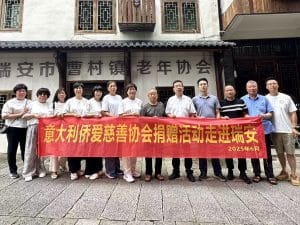In recent years, China has witnessed significant advancements in its social assistance framework, particularly in the integration of social work (NGO work in western context) professionals into the system.
The release of the Interim Measures for Social Assistance in 2014 marked a pivotal moment, clarifying the role of social work professionals in addressing social needs. Fast forward to 2023, with the forwarding of the Opinions on Strengthening Dynamic Monitoring of Low-Income Populations and Improving Stratified Classification of Social Assistance Work, Beijing has set forth new directives, elevating the expectations for social work participation in social assistance initiatives.
Over the past decade, as social assistance policies evolved, so did the role of social workers, consistently delving deeper into this crucial domain.
Dynamic Monitoring: Actively Identifying Assistance Needs
Since the implementation of the Interim Measures, social workers in Taicang City, Jiangsu Province, have been actively identifying assistance needs. For instance, during household visits, a worker discovered that Ms. Jiang, despite having some work capability, found it challenging to secure employment due to hearing impairments and bipolar disorder.
When this information was uploaded to the social work service information system of Taicang City, the Social Work Service Guidance Center in the city conducted precise profiling of Ms. Jiang’s circumstances.
They identified key features of Ms. Jiang, such as being unemployed for over six months, leaving the house less than three times a week, living alone, and suffering from insomnia. Without support, Ms. Jiang would likely fall back into poverty. Consequently, they assigned tasks to the township social work department where Ms. Jiang received the support she needs.
In Maoming City, Guangdong Province, social worker Ouyang Chan, discovered during a survey in the village that a villager appeared to have a mental disorder. After further investigation, Ouyang arranged for a qualified doctor to conduct a mental assessment at this villager’s home and assisted her in obtaining a disability certificate. Considering her family’s financial situation, Ouyang Chan helped them apply for both low-income and disability subsidies.
Stratified Management: Providing Precise Assistance
Social workers in Taicang City classify assistance recipients into three major categories: basic livelihood service recipients, behavioral deviation individuals, and temporary hardship cases, with a total of 15 subcategories.
Basic livelihood service recipients include extremely poor individuals, those eligible for basic living allowances, children in difficulty, and disabled and elderly individuals in need.
Behavioral deviation individuals include those with mental disorders, traumatized children, community justice correction individuals, and community drug rehabilitation individuals.
Temporary hardship cases include families facing significant changes in their members and individuals potentially exhibiting extreme behavior tendencies.
The center set up warning conditions within the system. When information is uploaded, intelligent recognition is performed. If there are six or more “red” indicators, it triggers an immediate warning; if there are more than 11 “blue” indicators, a warning is issued. If there are 1–5 “red” indicators plus 6–10 “blue” indicators, it’s a cross-warning. When an assistance recipient is identified as an immediate warning, senior social workers and psychotherapists intervene immediately.
For other assistance recipients, comprehensive services are matched and dispatched based on geographical area and social worker expertise, with resident social workers providing follow-up services.
Classified Measures: Matching Assistance Resources
The Opinions released in 2023 propose classifying assistance according to the type of hardship, extending medical, education, housing, and employment special assistance from basic assistance recipients and extremely poor individuals to low-income individuals on the edge of basic assistance and those facing rigid expenditure difficulties.
In Xi’an City, Shaanxi Province, 16-year-old Xiao Liu is cared for by his elderly grandparents. Social workers from the Shaanxi Dream Charity Development Center learned during a home visit that Xiao Liu’s parents, who divorced in 2011, had not fulfilled their obligations to support the elderly and raise their children.
The grandparents had meager monthly incomes but did not meet the criteria for basic assistance, and the family’s difficulties put Xiao Liu at risk of dropping out of school. After understanding the situation, social workers assisted Xiao Liu in applying for educational special assistance and connecting him with charitable resources to solve his tuition and living expenses.



